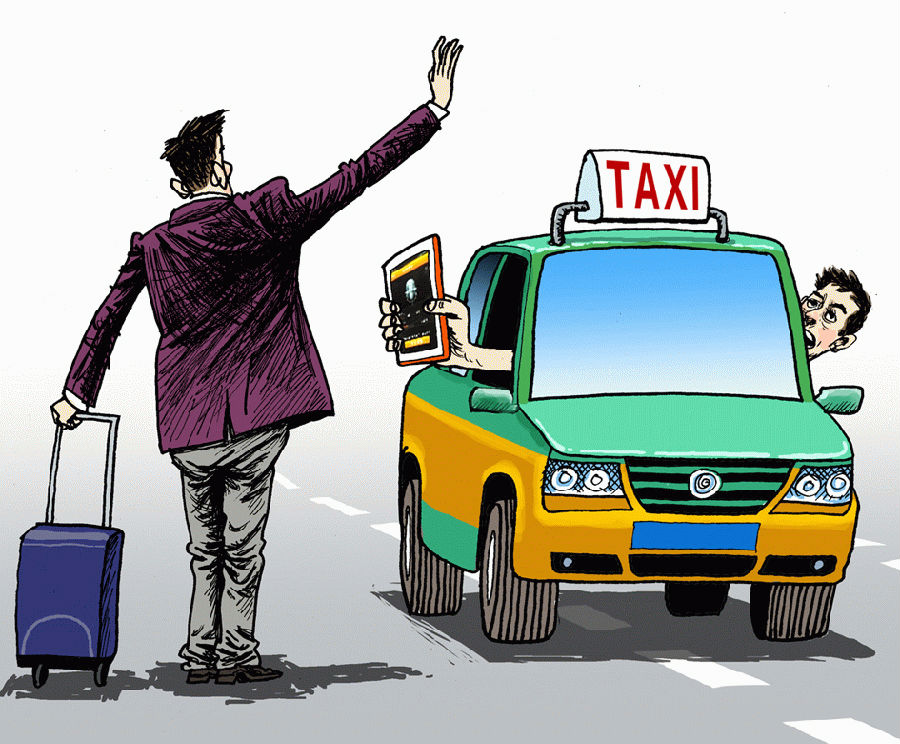In today's podcast, a new service on taxi-hailing apps to allow users to book private car transport will prompt government reforms in the country's taxi industry.
在今天的播報中,我們要講述的是一款能夠讓用戶在手機上打到私家車的軟件,這一軟件促進了政府對出租車產業的改革。

Taxi-hailing apps, including Didi Dache and Kuaidi Dache, began to provide a service that allows riders tobook private car transport over a mobile device this year in China. Didi Dache'Ap service allows users to see the nearest driver registered with a private hire company and the price is 17 Yuan with 3 kilkometers in Beijing cab fares are priced at 13 Yuan within 3 kilometers.The service has faced a backlash in many cities in China, with local governments of Nanjing, Shanghai and Dalian banning the service. The taxi-hailing apps have challenged the system for fare pricing and impacted market share for taxi companies. But Fu Weigang, vice president of the Shanghai Institute of Finance and Law, has suggested the government take a more tolerant stance and leverage the technology's information-sharing advantages to manage licensing issues.Mobile apps offer real time information of the ride, which serves to lower safety concerns brought about by unlicensed operators, Fu said. The Ministry of Transport said on November 27 that car-hailing apps meeta diversified demand in the market and could lead to market-oriented changes to the transit industry.
包括滴滴打車和快的打車這樣的打車軟件開始了新的服務,今年,中國的用戶可以在手機上預訂私家車的交通服務。滴滴打車的應用軟件能夠讓客戶預定到在私車公司注冊的司機,在北京,3公里內為17元,出租車為三公里內13元。這一服務在中國多個城市遭到了強烈反對,南京、上海以及大連都禁止了這一服務。打車軟件向記價系統提出了挑戰,并且對出租車公司在市場上的份額構成了影響。但是,上海金融與法律研究院副院長傅蔚岡認為政府應該采取更加容忍的態度,并且平衡信息技術共享所帶來的優勢,并進一步解決許可證問題。移動軟件向客戶提供了實時的信息,這減輕了對于無證車輛所帶來的安全擔憂,這是傅所說的。11月27日,交通部稱打的軟件滿足了市場的不同需求,這也將對以市場為主體的交通產業帶來改變。
For Caixin Online, this is Diana Bates.
這是戴安娜·貝茨為您帶來的財信新聞。
譯文屬可可英語原創,未經允許,不得轉載。











